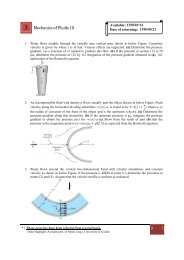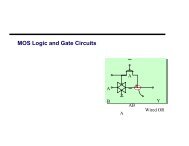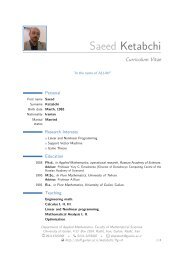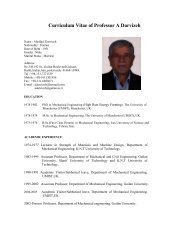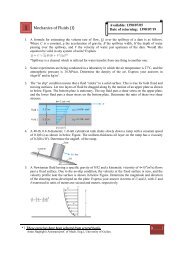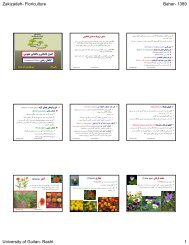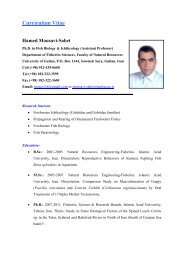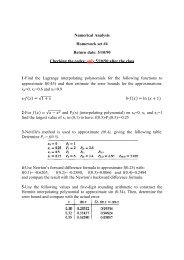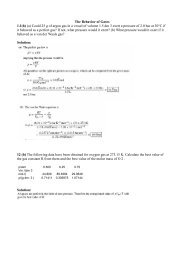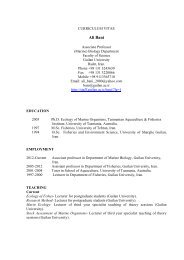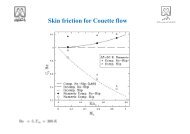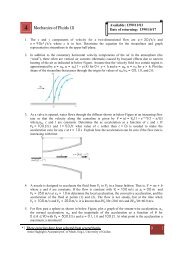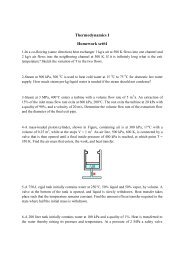Medical Tourism in Developing Countries
Medical Tourism in Developing Countries
Medical Tourism in Developing Countries
- No tags were found...
Create successful ePaper yourself
Turn your PDF publications into a flip-book with our unique Google optimized e-Paper software.
Offshore Doctors ● 45conventional western medic<strong>in</strong>e. They perform operations and otherwisetreat and rehabilitate people who are sick or <strong>in</strong>jured, but they do so <strong>in</strong> amore congenial, resort-like atmosphere.” 11Included <strong>in</strong> lifestyle medic<strong>in</strong>e is travel for the sake of recuperation. Thesetend to be trips close to home and visits to friends and family who canprovide assistance and peace of m<strong>in</strong>d to convalesc<strong>in</strong>g patients. Under stressfreeand relax<strong>in</strong>g conditions, it is believed that bodies are more likely toheal. A study by Hunter-Jones focused on cancer patients who found thatpost-treatment holidays eased their symptoms of depression, fatigue, andlack of self-confidence. 12Tourist ServicesIn the aftermath of their <strong>in</strong>vasive or diagnostic procedures, patients andtheir families seek out tourist attractions, friendly locals, low cost of liv<strong>in</strong>g,exotic experiences, and some tangible souvenirs to take home. They becometourists. What can they hope to f<strong>in</strong>d <strong>in</strong> the countries under study?Several decades ago, when exotic-locale tourism first took off, the attractionwas the three Ss: sun, sand, and sex. Most tourist resorts were onbeaches with clean water and prist<strong>in</strong>e sand. Resorts catered to Westerntastes, and activities such as parasail<strong>in</strong>g and scuba div<strong>in</strong>g were available.To the extent that tourists wanted to venture off the resort, they exploredancient sites and museums. Those otherwise <strong>in</strong>cl<strong>in</strong>ed visited theme parks,religious sites for the devout, and nature preserves. Ecotourism has beengrow<strong>in</strong>g <strong>in</strong> importance, as the three Ss are be<strong>in</strong>g replaced by the three Ts:travel<strong>in</strong>g, trekk<strong>in</strong>g, truck<strong>in</strong>g. 13Such active side trips are likely to appeal to families of prospectivepatients. The patients themselves might be more or less <strong>in</strong>cl<strong>in</strong>ed towardsrelaxation and quiet recuperation, depend<strong>in</strong>g on the nature of their medicaltreatment. The more <strong>in</strong>vasive the procedure, the less <strong>in</strong>terested they are <strong>in</strong>tourism. Nevertheless, there is enough evidence of the splic<strong>in</strong>g of tourist andmedical services that the three Ss of LDC tourism have now been replacedby four Ss: sun, sea, sand, and surgery. 14 In the case of India, it has evenbeen said that, “tourism and medic<strong>in</strong>e have become synonymous.” 15Who Are <strong>Medical</strong> Tourists?International patients differ with respect to their countries of orig<strong>in</strong>, thek<strong>in</strong>d of medical services they seek, as well as the proximate motivation forseek<strong>in</strong>g the care. It is useful, therefore, to dist<strong>in</strong>guish between people whobuy LDC medical care because they happened to be <strong>in</strong> the country at the



